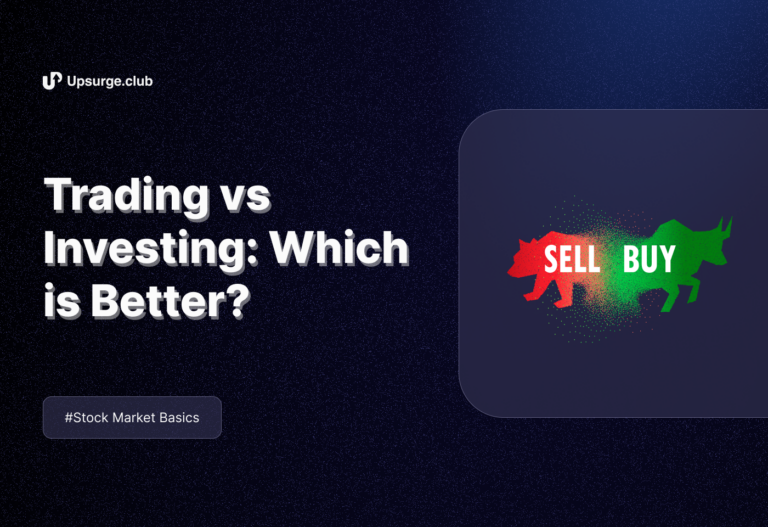Currently, every investor wants to invest in shares that give them growth and profits. They are looking for unique opportunities to invest every day. Unlike public stock exchanges-unlisted shares let you invest in private company shares before they reach the mainstream but there are also many risks involved in unlisted shares. But if you are looking for ways to diversify and expand your portfolio, unlisted shares are what you should look at.
Let’s understand what all this noise about unlisted shares is and how you can get involved.
What Are Unlisted Shares?
Unlisted shares are shares in companies that haven’t reached the IPO stage or the public stock exchange yet. These could be startups, family-run businesses, or private companies that have immense potential for growth but have limited access to the traditional stock market. They are not being traded publicly but these companies give investors a chance to invest in their business via unlisted shares at an early stage before they grow in their fields and hit large-scale success.
Listed vs. Unlisted Shares
The major difference between listed and unlisted shares lies between their accessibility and their liquidity. Companies that have their shares listed on an IPO can be bought at major stock exchanges. Unlisted shares on the other hand are a little challenging to trade, they need to be bought from private platforms that require direct transactions. It could be risky but they are also great return opportunities. The returns are even better if the company eventually goes on a public platform or performs well in the industry.
Important Factors to Consider Before Investing in Unlisted Shares
Investing in unlisted shares requires you as an investor to perform thorough research and have a good understanding of the company’s performance and future prospects before you put in your money.
– Company Financials: Healthy financial records show that your management is solid and your business model is sustainable. Healthy financials say a lot about a company’s stability and growth.
– Liquidity: Selling unlisted shares can sometimes be challenging since they are not traded on public platforms. Assessing liquidity is crucial to understand how long you might need to hold the investment.
– Industry Growth Potential: An industry that is promising will always give companies the right environment to grow and expand. You must always look out for company trends that promise growth before you invest.
– Existing Investor Base: You must look at who has invested in the company before you put in your money. If well-regarded individuals and companies have invested, it means there is scope for growth.
– Comparable Companies: You must always check similar company performances. It will give you an idea as to whether the company is competitive or not.
– Discounted Cash Flow: Evaluating future cash flows will help you get a clearer picture of the company’s worth.
Balancing Potential Risks and Rewards
Investing in unlisted shares comes with its risks but also brings along unique rewards. If you are ready to take a higher risk for a higher reward, unlisted shares are for you. Diversifying your portfolio via unlisted shares can bring you a lot of benefits especially if the company decides to go public.
How to Invest in Unlisted Shares
There are several ways of investing in unlisted shares, here are some popular methods.
– Investing in Startups and Intermediaries: Many companies look for investors early on, if you participate in these early rounds, you get a chance to pick shares at attractive prices.
– Buying ESOPs Directly from Employees: If you want direct access to a company’s unlisted shares, you can purchase them directly from their employees as well under the Employee Stock Ownership Plan (ESOP). This is usually done in reputable startups.
– Buying from Promoters: In some cases, the company’s founders and promoters, sell their shares. This may require some negotiation from your end, but it is a great way for you to acquire shares directly.
– Investing in PMS and AIF Schemes that Include Unlisted Shares: Portfolio Management Services (PMS) and Alternative Investment Funds (AIF) may specialize in picking high-potential unlisted stocks. Managed by financial professionals, if you prefer expert management for your investments – these funds are a great option.
Investing in unlisted shares is a great way to tap into private companies that have the potential for future growth. These shares come with their own challenges, but If you’re ready to take a closer look at private investment, weigh your financial goals, stay informed, and consider seeking professional advice. With careful planning and thorough research, unlisted shares could become a valuable addition to your investment strategy. They also come with opportunities that help you grow outside traditional stock markets.
Happy Investing.
About the author: Saumil Patel heads Content Marketing at InCred Money, where he and his team leverage his in-depth knowledge of emerging financial markets and his deep understanding of finance and investment strategies to craft compelling digital content that resonates with savvy investors. With a keen interest in alternative investments, Saumil combines his passion for finance with his sharp analytical skills to simplify complex financial concepts, making them accessible to a broader audience. Saumil is passionate about helping investors navigate the complexities of high-growth private companies. His expertise lies in creating insightful, data-driven content that empowers investors to diversify their portfolios and seize early-stage opportunities. His innovative strategies help InCred Money reach new audiences in the fintech space. Outside of work, he enjoys gaming and cricket, using strategic thinking in all aspects of his life.



